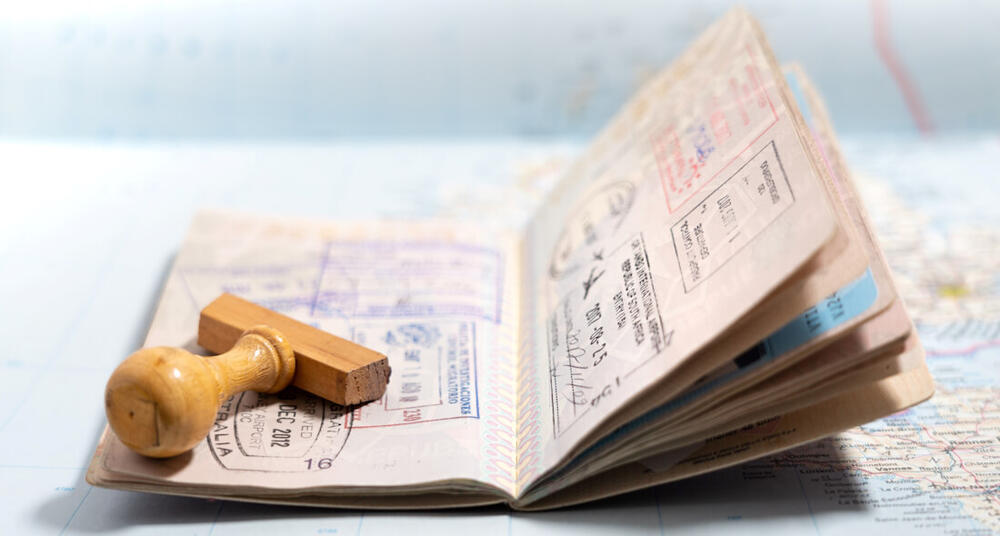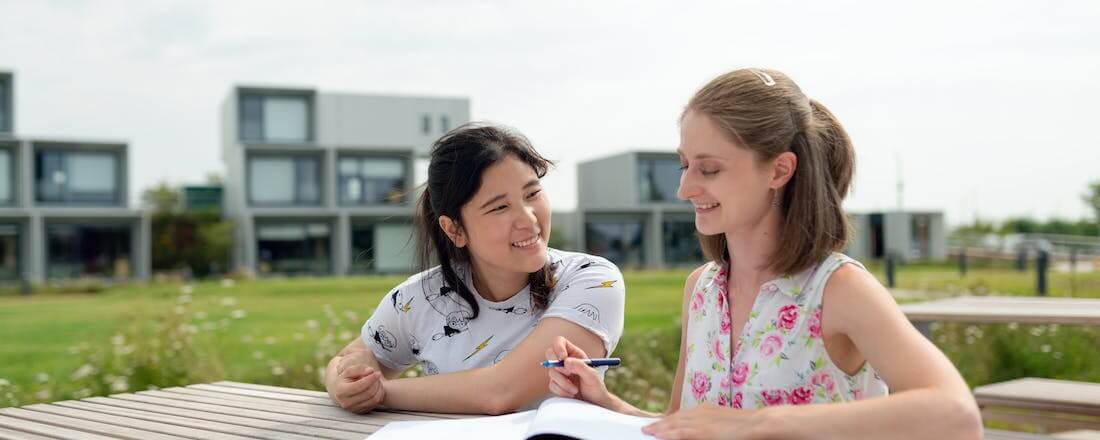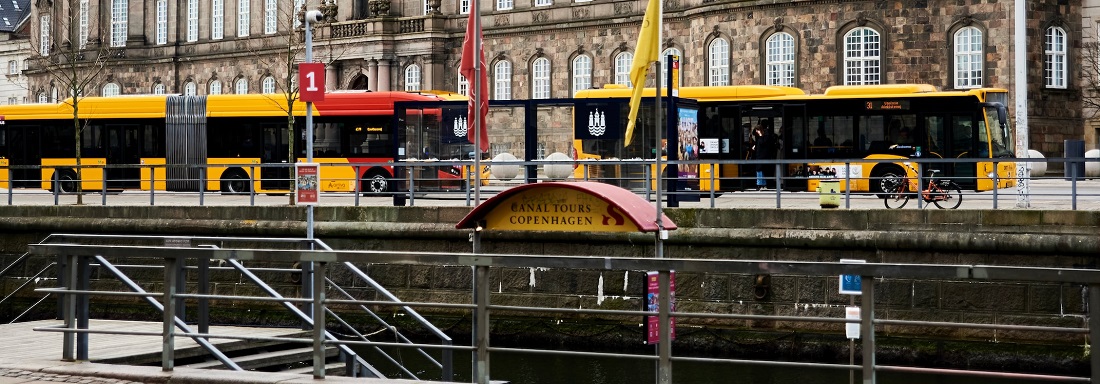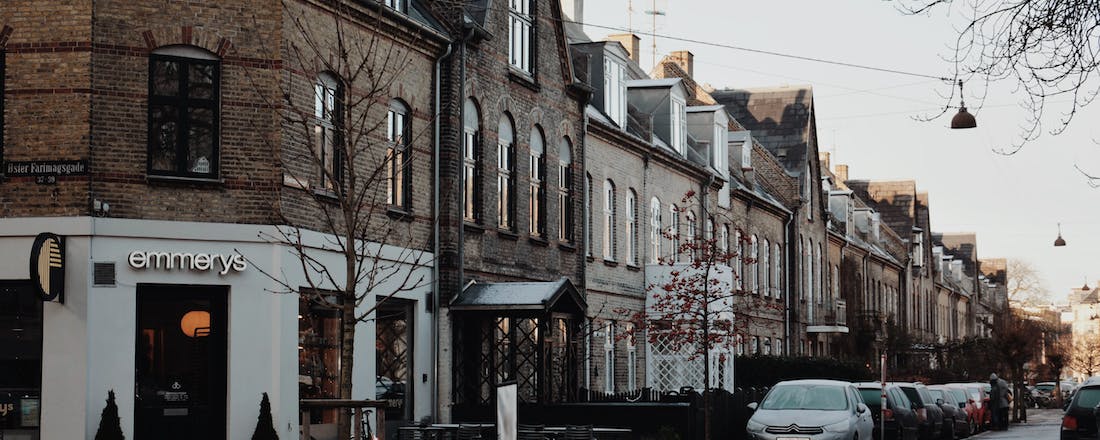Denmark is well known as a socially liberal country where minority groups are generally welcomed and treated well. The country has eminently accessible infrastructure, a thriving LGBTQ+ community, and empowered and powerful women.
Read on to learn more about diversity and inclusion in Denmark.
Accessibility in Denmark
Denmark’s accessibility standards are protected by law, which prohibits discrimination based on physical, sensory, intellectual, or mental disabilities. Denmark aims to be a world leader when it comes to amenities for people with disabilities and has a programme called ‘Accessibility for All’, which aims to make it easier for them to travel and participate in everyday life.
Denmark is largely accessible for people who use a wheelchair or have sensory disabilities. Most road crossings have audio cues to signal when it’s safe to cross. All buses have a manual wheelchair ramp, and wheelchair taxis are also available.
Most metro and train stations are accessible via a lift or elevator, and it’s possible to wheel a chair onto the train from the platform. Assistance can be provided at the train station if you book at least 12 hours in advance, and this is especially important if you're departing from a major station during rush hour. Travel companions, such as assistants or guide dogs, can accompany people with disabilities on public transport at a reduced price.
People who can't travel by public transport due to their disability can register for door-to-door transport in a specially equipped minibus known as Movia Flexihandicap.
Unlike many European countries, Denmark doesn’t use a quota system for employing disabled people; instead, it favours an inclusive and active labour market approach with wage subsidies and special assistance measures. Companies are encouraged to employ people with disabilities, and there is a compensation system in Denmark that ensures employers are not faced with any extra expense when employing them.
Useful resources
DBS Handicap Service: call +45 70 13 14 19 (24/7) to check whether a particular train station is accessible for wheelchair users.
Access Denmark
Taxa
Dantaxi
VisitDenmark Accessibility Guide
Accessible Copenhagen: A Guide For Disabled Travelers
DSB Disability Services
LGBTQ+ in Denmark
The LGBTQ+ community in Denmark enjoys some of the most progressive laws in the world. Same-sex sexual activity has been legal since 1933, and in 1989, Denmark became the first country in the world to legally recognise same-sex unions. Same-sex marriage has been possible since 2012. In 2014, Denmark became the first country to allow legal gender change without a medical expert statement.
Copenhagen is well known as a gay-friendly city and is famous for its annual Pride event in August. Copenhagen Winter Pride also takes place each February, featuring debates, workshops, live comedy, podcast recordings, film screenings, concerts, and LGBTQ+ history tours around the city.
The old Latin Quarter of the city is the hub of LGBTQ+ nightlife, but it’s smaller than you might expect due to the level of integration in Copenhagen. Vesterbro is another neighbourhood with many LGBTQ+-friendly establishments.
Further reading
LGBTQ+ Denmark
Sabaah: Advocacy Group For Ethnic Minority LGBTQ+ People
Copenhagen Pride Official Website
Gender equality in Denmark
Denmark’s approach to gender equality ranks among the best in the world, with Danish society highly valuing equal opportunities for women and girls. The country is tied for second with the Netherlands in the European Institute for Gender Equality’s Gender Equality Index of 2024, just behind Sweden.
Equality has long been a cornerstone of the Danish welfare state, and today, the percentage of Danish women working outside the home is one of the highest in the world.
A gender pay gap remains, with men earning approximately 13 percent more than women, mirroring the EU average.
In 2024, Denmark ratified the ILO Convention against Violence and Harassment in the World of Work, strengthening protections in the workplace.
Further reading
Denmark.dk: Gender Equality
The Women’s Council Denmark
European Institute for Gender Equality – Denmark
UN Women – Denmark Commitments
Women in leadership in Denmark
When it comes to women in leadership, Denmark presents an interesting paradox. Most Danes believe that gender parity has been mostly achieved, but only 35 percent of the current government and 43 percent of parliament seats are held by women. On the other hand, in 2022, Denmark re-elected Mette Frederiksen, their second female Prime Minister, who first took office in 2019 at the age of 41, becoming the youngest Prime Minister in Danish history. Denmark was also officially ruled by Queen Margrethe II for 52 years before her abdication in 2024.
Denmark ranks 23rd globally for women’s representation in corporate leadership. It's worth noting that this represents a disconnect from Denmark's otherwise progressive gender equality measures. This disconnect between political representation and corporate leadership is a pattern seen across the Nordic countries.
Despite Denmark's progressive reputation, gender roles in households show some persistent traditional patterns. Statistics show that mothers took 244 days of parental leave compared to fathers' 62 days for babies born in late 2022, although this represents a notable shift from previous years. While this is less pronounced than it used to be, it results in many Danish women facing a ‘double shift’ of professional and domestic responsibilities.
Further reading
Nordic Spencer Stuart Board Index
Female Force 2025
Danish-UK Female Leadership Group
Mental health awareness in Denmark
Mental health awareness in Denmark is growing, especially regarding the challenges faced by expats, who can be at greater risk of issues like depression and anxiety.
Studies examining expat mental health in Denmark have identified several key challenges, including feelings of loneliness and isolation, language barriers, and anxiety or depression. The Copenhagen Post reported that expats face average waiting times of two to six months for specialist treatment, creating additional barriers to addressing these issues.
International companies are becoming more aware of mental health issues, and many have adjusted their policies to provide better support.
In theory, Denmark offers free and equal access to psychiatric treatment for all residents. In practice, public mental health services face significant capacity challenges, with reports showing that only one public psychotherapist had no waiting list in 2023, while others had waiting times of up to 52 weeks (one year).
The general practitioner (GP) acts as the gatekeeper to all healthcare services, including psychiatric treatment. Many expats and international assignees working in Denmark seek the help of a private English-speaking therapist or psychiatrist instead. A good health insurer should be able to provide you with a list of options and resources.
Useful resources
The Copenhagen Post: How Expats Can Navigate Mental Health Challenges in Copenhagen
Unconscious bias training in Denmark
Unconscious bias training across Denmark has gained significant traction following recent studies revealing that many people with minority backgrounds face workplace discrimination, even in a progressive country like Denmark.
A report by the Danish Institute for Human Rights found that more than four in five people with an ethnic minority background have experienced illegal discrimination. The Municipality of Copenhagen has launched programmes to promote ethnic diversity in the labour market, including workshops and seminars where companies learn more about these issues.
The concept of unconscious bias is an implicit set of often stereotyped ideas we carry about groups of people different from ourselves. These ideas are not purposefully adopted but rather develop subtly over time, and we tend to hold unconscious biases about groups we never or rarely come into contact with.
Unconscious bias can profoundly affect both personal and work conditions. In the workplace, unchecked bias undermines important aspects of the company, negatively affecting employee performance, retention, and recruitment. It can affect how companies hire, interact with colleagues, and make business decisions.
In a bid to create a better work environment, many companies are beginning to institute unconscious bias training. Organisations like the Living Institute provide specialised training for employees, leaders, and teams across Denmark. There are also several online resources that you can use to improve self-awareness regarding bias.
Useful resources
Project Implicit
NonprofitReady's Free Unconscious Bias Training
Living Institute: Unconscious Bias Training
Harvard Online: Outsmarting Implicit Bias
Diversification of the workforce in Denmark
Workforce diversification in Denmark continues to expand, with public administration, education and health sectors employing the highest number of international employees. Most progressive companies in Denmark find that having a diverse workforce can be a strength rather than a challenge and understand that a mix of nationalities and perspectives can promote creativity and innovation.
If you’re an expat, it's usually simpler to join a company that already has other additional nationalities within the workforce. This makes it easier to form social connections than in companies with a close-knit group of local staff. As of 2024, the largest immigrant groups in the Danish workforce come from Poland, Ukraine, and Romania.
The Danish government has recently presented new initiatives aimed at improving business framework conditions and enabling international talents to flourish, including updating the Positive List for People with a Higher Education to include 162 job titles in 2025, up from 72 previously.
Safety in Denmark
Denmark’s safety record is impressive by all standards. Denmark is one of the safest countries in the world to live in, and most expats find that the locals are very welcoming toward foreigners. If you’re a woman, you have no reason to be concerned when moving here; it is easy to get around the major cities, the transport is safe and efficient, and the roads are lit up well at night. Of course, there is some petty crime, and it’s sensible to take normal precautions as in any country.
Useful resources
UK Government Safety and Security Advice for Denmark
US Denmark Travel Advisory
Calendar initiatives in Denmark
4 February – World Cancer Day
February – Winter Pride, Copenhagen
28 February – Rare Disease Day
March – TB Awareness Month
8 March – International Women’s Day
17 May – International Day Against Homophobia
19 May – Global Accessibility Awareness Day
August – Copenhagen Pride Parade
10 September – World Suicide Prevention Day
October – Breast Cancer Awareness Month
10 October –World Mental Health Day
14 November – World Diabetes Day
1 December – World AIDS Day

 Networking is an established and necessary part of finding a job in Denmark. There is a high level of mobility in the job market, which is typically facilitated through various networks. LinkedIn is a good way for expats to tap into a social network and get to know local companies.
Networking is an established and necessary part of finding a job in Denmark. There is a high level of mobility in the job market, which is typically facilitated through various networks. LinkedIn is a good way for expats to tap into a social network and get to know local companies. 









